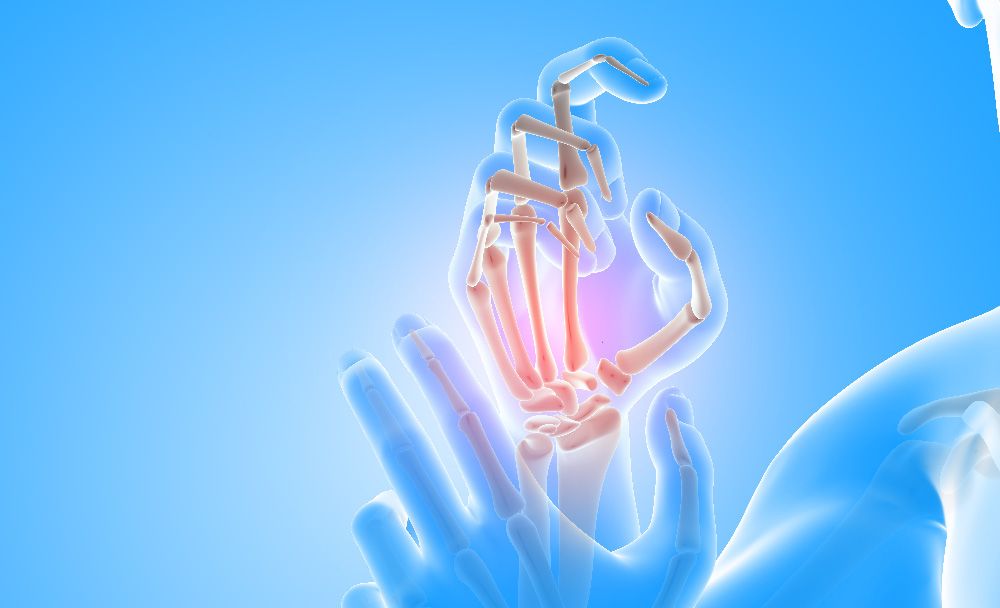This article is reviewed by an expert

Vitamin D is both produced in the body as a hormone and can be consumed as a nutrient. It is a fat-soluble vitamin that has long been known to help the body absorb and retain calcium and phosphorus, both critical for building bone, and keeping teeth and muscles healthy.[1] [2]
Vitamin D has two main forms, D2 (ergocalciferol) and D3 (cholecalciferol).[3] Both are also naturally occurring forms that are produced in the presence of the sun’s ultraviolet-B (UVB) rays, hence its nickname, “the sunshine vitamin”. [1]
Benefits
Vitamin D is a major source of bone and muscle health. Additionally, it also ensures good immunity, alleviates inflammation and aids in oral health.
Bone Health
Vitamin D is needed for bone growth and bone remodelling by osteoblasts and osteoclasts. Without sufficient vitamin D, bones can become thin, brittle, or misshapen. Vitamin D sufficiency prevents rickets in children and osteomalacia in adults. Together with calcium, vitamin D also helps protect older adults from osteoporosis. [3]
Muscle Health
Vitamin D is needed for the maintenance of normal blood levels of calcium and phosphate that are required for muscle contraction. In adults, inadequate dietary intake of Vitamin D leads to poor absorption of calcium from diet and increased calcium resorption from the bone and kidney and reduces bone mineral density resulting in muscle weakness and increased risk of falls. It is theorized that Vitamin D may increase muscle strength, thereby preventing falls. [4]
Oral Health
Vitamin D plays a key role in bone and tooth mineralization, and when levels are unregulated it can lead to the “rachitic tooth”.[5]

Anti Infection & Inflammation
Vitamin D could increase glucose uptake in the adipose tissue and reduce low-grade chronic systemic inflammation.[6]
Vitamin D is also responsible for the modulation of such processes as cell growth, neuromuscular and immune function, and glucose metabolism.[3]
Many of the body’s organs and tissues have receptors for vitamin D, which suggest important roles beyond bone and muscle health.[1]
Sources
While the sun is the pivotal source for vitamin D, vitamin D rich foods and vitamin D supplements are easily accessible too.

Vitamin D production in the skin is the primary natural source of vitamin D, but many people have insufficient levels because they live in places where sunlight is limited in winter, or because they have limited sun exposure due to being inside most of the time. People with darker skin tend to have lower blood levels of vitamin D because the pigment melanin acts like a shade, reducing production of vitamin D.[3]

Vitamin D foods are several such as spinach, orange juice, sesame seeds, drumsticks, milk, yogurt, butter, mushrooms, etc.[7]
Uses
Vitamin D supplements are commonly used to treat and prevent vitamin D deficiency.
People use vitamin D for weak and brittle bones, heart disease, asthma, hay fever, and many other conditions.
Deficiencies
Studies suggest that there is 80% prevalence of vitamin D deficiency in women and 50% in men. Apart from precipitating calcium deficiency disorders, latest research has shown vitamin D deficiency to be responsible for various disease conditions like type-2 diabetes, heart disease, influenza, depression.[8]
A lack of vitamin D also leads to bone deformities such as rickets in children, and bone pain caused by a condition called osteomalacia in adults.[2]
Symptoms

Vitamin D deficiency symptoms may be the following:[7]
- Fatigue
- Lethargy
- Low immunity
- Blood sugar issues/diabetes
- Weight gain (obesity)
- Mood change
- Muscle cramps
- Recurring infection
- Sore muscles
- Excessive sweating
- Bone density loss
FAQs
1. What is Vitamin D?
Vitamin D is both produced in the body as a hormone and can be consumed as a nutrient. It is a fat-soluble vitamin that has long been known to help the body absorb and retain calcium and phosphorus, both critical for building bone, and keeping teeth and muscles healthy.
2. What causes Vitamin D deficiency?
Vitamin D deficiency may be caused due limited sunlight. People with darker skin tend to have lower blood levels of vitamin D because the pigment melanin acts like a shade, reducing production of vitamin D.
3. What are the sources of Vitamin D?
Vitamin D production in the skin is the primary natural source of vitamin D. Vitamin D can also be found in several food sources like sesame seeds, drumsticks, milk, yogurt, butter, spinach, orange juice, mushrooms, etc.
4. What health conditions are associated with Vitamin D deficiency?
Apart from precipitating calcium deficiency disorders, latest research has shown vitamin D deficiency to be responsible for various disease conditions like type-2 diabetes, heart disease, influenza, depression.
Conclusion
In conclusion, vitamin D is an essential nutrient that plays a vital role in various bodily functions, including bone health, immune function, and cognitive health. While our bodies can produce vitamin D through exposure to sunlight, many people still struggle to maintain adequate levels due to lifestyle factors such as limited sunlight exposure, dietary habits, and underlying health conditions. Vitamin D supplements may be necessary for some individuals to ensure optimal levels, but it’s important to speak with a healthcare professional to determine the appropriate dosage and duration.
Disclaimer: The information provided here is only for informational purposes, please consult a trained Ayurvedic practitioner every time before initiating any treatment.
References:
- Vitamin D
- Vitamin D -Vitamins and minerals
- Vitamin D
- Vitamin D deficiency in India
- Vitamin D Deficiency and Oral Health: A Comprehensive Review
- Effects of 6-month vitamin D supplementation on insulin sensitivity and secretion: a randomised, placebo-controlled trial
- AYURVEDIC TREATMENT IN DEFICIENCY OF VITAMIN D
- Vitamin D Deficiency And Its Related Health Effects: An Indian Perspective



















